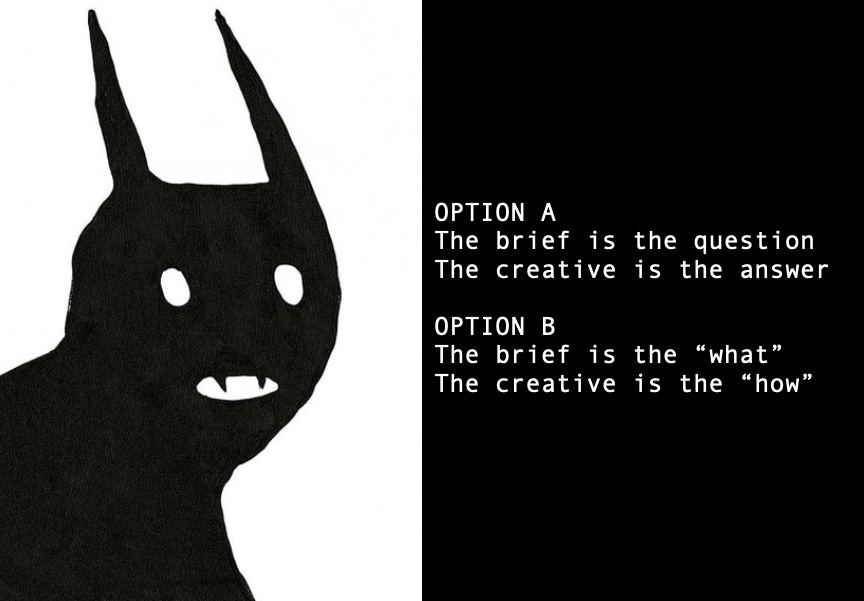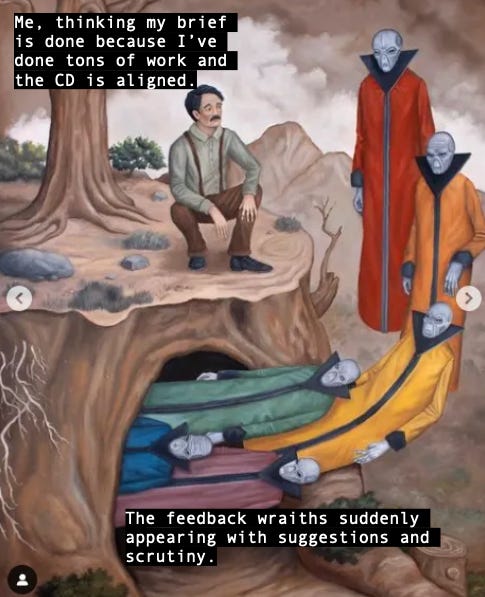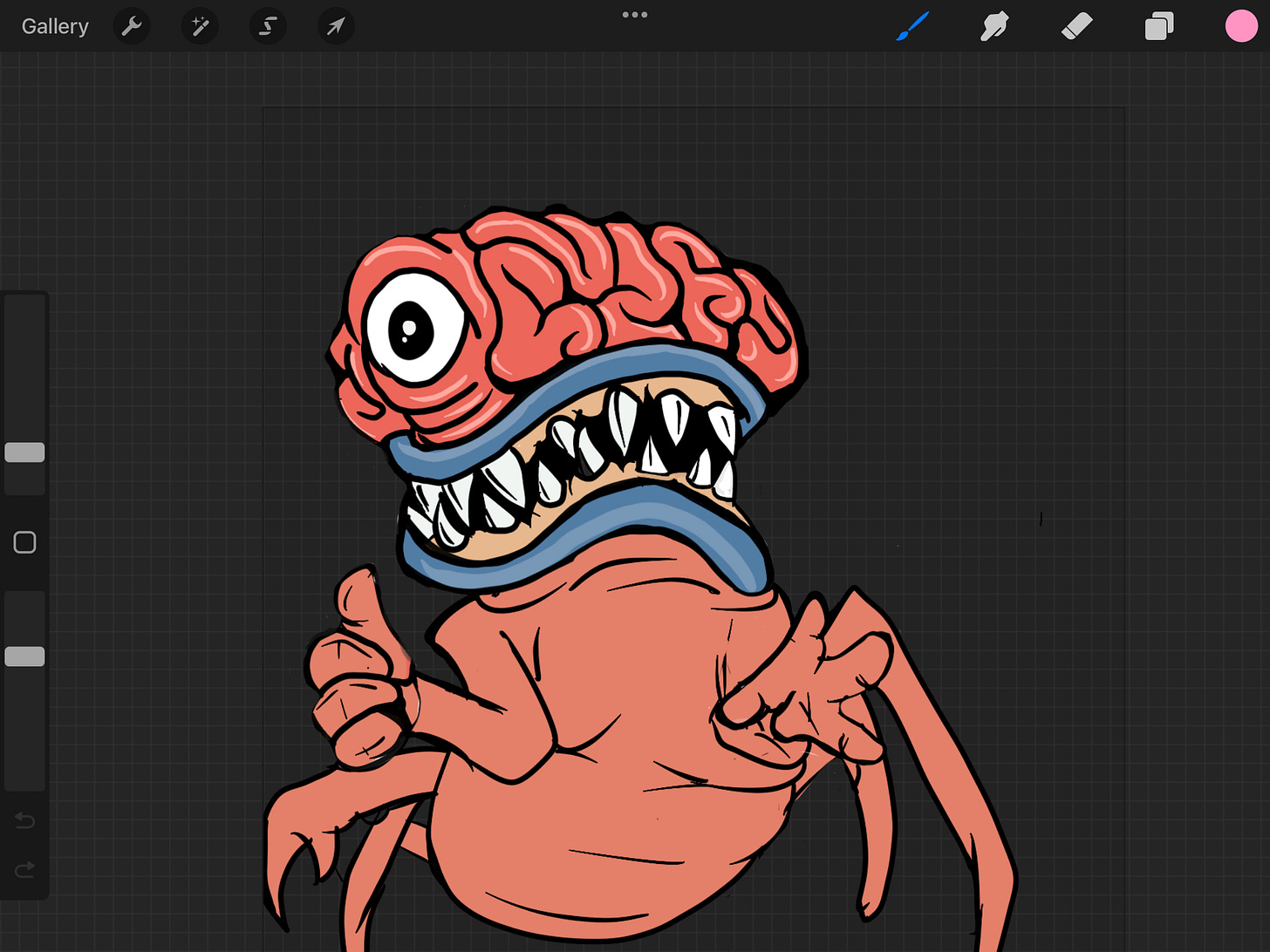Every now and then someone in this wacky little circle of ad people with an internet presence will make something so good that I add it to my list of “annual reads” – A list I started the first time I read “How to Fail”
Zoe Scaman recently shared this deck on how cynicism is sucking the lifeblood out of the industry and it absolutely is something I need a recurring dose of in my life.
My favorite slide:
A good deck with an important message that I needed to hear. Thank you, Zoe.
░░░░░░░░░░░░░░░░░░░░░░░░░░░░░░░░░░░░░░░░░░
Anyway, back to the usual, hopefully slightly less cynical, programming…..
░░░░░░░░░░░░░░░░░░░░░░░░░░░░░░░░░░░░░░░░░░
Good Advertising should be weaponized art.
░░░░░░░░░░░░░░░░░░░░░░░░░░░░░░░░░░░░░░░░░░
░░░░░░░░░░░░░░░░░░░░░░░░░░░░░░░░░░░░░░░░░░
This week’s installment of “Strategy Lessons from Parenting”
Respect and obedience are not the same thing. It is easy to forget that in the moment, but a toddler disobeying is usually doing so because there is something else deeper going on.
Same thing with a creative brief. A creative team isn’t disrespecting you if they stray from the brief. Before you react – sit down on the floor with them and figure out why… there is probably something worth talking about behind the “disobedience.”
░░░░░░░░░░░░░░░░░░░░░░░░░░░░░░░░░░░░░░░░░░
oof.
░░░░░░░░░░░░░░░░░░░░░░░░░░░░░░░░░░░░░░░░░░
Strategy is about minimizing and maximizing.
Minimizing mistakes
Maximizing (hidden) opportunity.
Most organizations are overly focused on minimizing risk. In creative agency land, we seem to be only focused on maximizing. Which should probably be our main focus, but when was the last time a strategy started with “here’s what will happen if we don’t do this” ?
░░░░░░░░░░░░░░░░░░░░░░░░░░░░░░░░░░░░░░░░░░
Fixation hides insight.
Focus your attention but widen your aperture.
░░░░░░░░░░░░░░░░░░░░░░░░░░░░░░░░░░░░░░░░░░
░░░░░░░░░░░░░░░░░░░░░░░░░░░░░░░░░░░░░░░░░░
░░░░░░░░░░░░░░░░░░░░░░░░░░░░░░░░░░░░░░░░░░
I don’t see enough research where the questions you ask are different than the questions you’re trying to answer.
░░░░░░░░░░░░░░░░░░░░░░░░░░░░░░░░░░░░░░░░░░
Truth 1: Most cultural movements and periods of invention came from a society with free time. Be it the unemployed punks of the UK, or the sponsored artists of the renaissance, people create new things when they have the time to tinker and experiment.
Truth 2: Since the 1980s, the economic policy in the united states has created an economy where free time is limited and a culture where the free time we do have is spent consuming as a way to recharge rather than creating as a way to energize.
Truth 3: in the past 20 or so years, there has been less significant cultural progression than any 20 year period in the past. The things people wear, say, listen to and do now are more similar to what they were 20 years ago than they are different. (of course there are exceptions, but broadly speaking) Kids listen to old music just as much as new music. When was the last truly distinct “era”?
Hypothesis: Culture stagnates when we can’t afford to exist. (until things boil over. Revolution is cultural fertilizer)
░░░░░░░░░░░░░░░░░░░░░░░░░░░░░░░░░░░░░░░░░░
░░░░░░░░░░░░░░░░░░░░░░░░░░░░░░░░░░░░░░░░░░
WEEKLY MONSTER
procreate practice from the plane.












“Truth 1: Most cultural movements and periods of invention came from a society with free time.” Agreed.
But consider this idea: invention springs from communities with a thick social mattress - free healthcare, unemployment benefits, disability benefits, wide access to legal advise, paid extended maternity leave, and many more programs. See this: https://youtu.be/WTXXY_LNywU
When survival is easier, people have time to tinker.